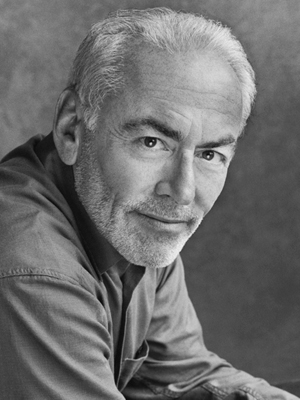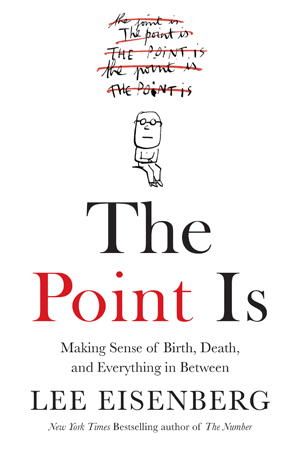It’s a question that people in every time and every culture have asked themselves: What’s the point of it all, anyway? Gold Coast resident Lee Eisenberg has given that question more thought than most. The renowned editor (he ran Esquire in the 1980s) and author (of, among other books, the 2006 best-seller The Number: A Completely Different Way to Think about the Rest of Your Life), Eisenberg is out with a new book this month: The Point Is: Birth, Death, and Everything in Between. I recently asked him some questions about it. (The transcript has been condensed.)

Why did you write the book?
When I was writing The Number, which is about why we have such a difficult relationship with money, I realized that we harbor this delusion that if we only had enough money, we would have the ticket to fulfillment. What will make you satisfied and fulfilled, I wondered, especially in your later decades? But I never really probed further what meaningfulness meant to people. I was curious. And I’m in a time of life [Eisenberg is 69] when many of us ask ourselves, Does all this add up to anything? To anything that feels sufficient? So that was all banging around in my head.
Someone might read the book’s title and charge you with hubris, no?
[Laughs.] The title may sound provocative—and God knows I’m not the first to ask what the point of life is; it’s the oldest question in the history of humankind—but it is an accurate description of what the book does. It shows how we write our life stories out of the memories that we collect, keep, and put into chronological order as a narrative, a story. It’s how we make sense of life.
The central metaphor of your book involves the scribbler upstairs. Can you explain?
I drew on the structure of real stories, and how writers talk about the craft of writing them, and used it as a metaphor for how we write life stories. I imagined that each of us has a teeny-tiny writer sitting up in the folds of our brain, with his little tiny pen and paper, who moves in when we’re about three—which is when we start collecting memories and learn what a story really is—and stays up there for the rest of our lives. That’s backed up by tons of cognitive psychologists and neuroscientists and others who basically say that that impulse—to make a story out of our life—is what makes life coherent. We understand ourselves through the narratives we create.

So, if you can boil the book down to its essence: What is the point?
I don’t purport to tell every man, woman, and child what the meaning of life is. That’s going to vary from person to person. The point is the story. To “write” the best, richest, most meaningful story we can. It’s how we write and otherwise interpret our story that lends a sense of purpose or some verdict as to whether our life is meaningful or not.
Why is midlife such a crucial time?
When I was at Esquire, we used the term “the elbow,” meaning the middle of a story. As an editor, you know what it’s like: You get a story in that’s just electrifyingly wonderful, and then it hits this speed bump, or something goes wrong, often in the middle. The writer runs out of direction, or steam, or something, and the story comes off the tracks. What happens to us in our middle years is very much an elbow. You can make a wrong turn, or make a wrong move, or the route that you were following is no longer an interesting one.
Any advice on how to “write” the best story?
Keep your eyes open. See beauty and truth and justice when you run into it. Often we don’t record it and so we forget about it. One day I was at the Newberry Library, staring out the window, and I suddenly remembered that I had kept a diary about 25 years ago, from the day my son was born until shortly after my daughter was born. I looked at my hard drive and it was still there. It consisted of a great many things that I’d forgotten. What I realized—and a lot of psychological studies back this up—is that the things most meaningful to us are often not perceived to be meaningful when they happen. The meaning comes when you go back and revisit them years later. So you need to retain these experiences.
Also, attach yourself to something that’s greater than you are, something that will outlive you. Nurture children, or volunteer at a school, or march for breast cancer, or help save a library that was about to close. That way some vestige of your story, some piece of what you did, will live on. [The late psychologist] Erik Erikson called this generativity. It’s a very reassuring idea.


